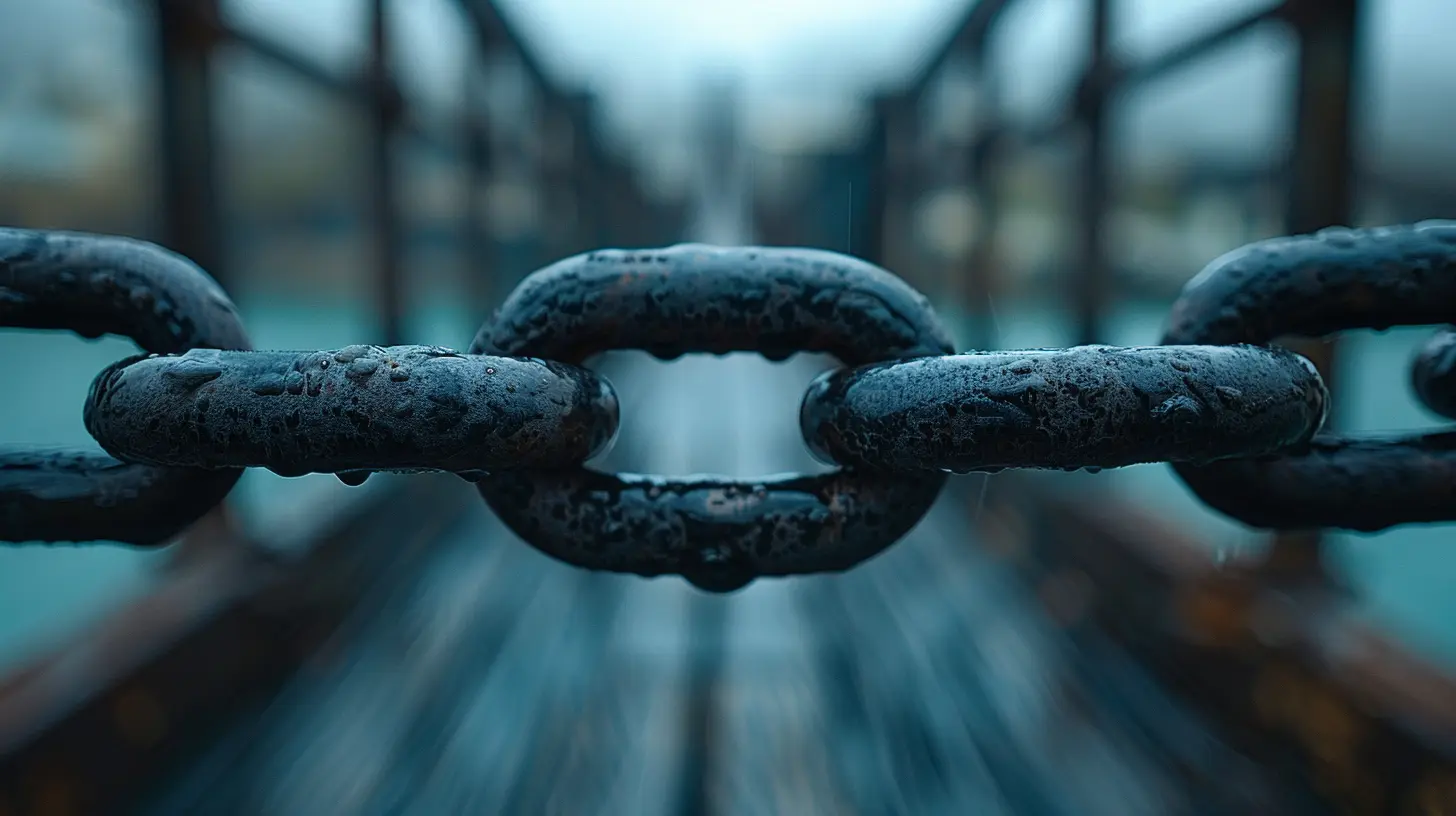Building Strong Financial Boundaries to Protect Your Wealth
9 November 2025
Money isn’t just about numbers—it’s about security, freedom, and peace of mind. But what happens when your finances feel like an open door, with friends, family, or even your own habits draining your wealth? That’s where financial boundaries come in.
Setting strong financial boundaries is crucial to safeguarding your hard-earned money and ensuring long-term stability. Let’s talk about why financial boundaries matter, how to set them, and how to stick to them without feeling guilty. 
Why Financial Boundaries Matter
Think of financial boundaries as a fence around your financial well-being. Without them, you're vulnerable to financial stress, debt, and even resentment towards those who constantly rely on you.Here’s why having solid financial boundaries is non-negotiable:
- Prevents financial burnout – Constantly giving or spending without limits can leave you drained.
- Protects your long-term wealth – Boundaries help you build and maintain savings for the future.
- Reduces financial stress – Knowing where your money goes gives you peace of mind.
- Improves relationships – Clear financial expectations prevent misunderstandings and resentment.
If you constantly feel drained, anxious, or uncertain about your finances, it might be time to strengthen those boundaries. 
Signs You Need Stronger Financial Boundaries
How do you know if your financial boundaries are too loose? Watch out for these red flags:- You feel obligated to lend money even when it makes you uncomfortable.
- You're constantly bailing out friends or family members.
- You have a hard time saying "no" when asked for financial favors.
- Your budget takes a hit due to social pressures.
- You feel guilty when you prioritize your own financial needs.
If any of these resonate with you, don’t worry—you’re not alone. Many people struggle to put themselves first when it comes to money. But setting boundaries is not selfish; it's necessary. 
How to Set Strong Financial Boundaries
Setting financial boundaries doesn’t mean shutting people out or being stingy—it means being intentional with your money. Here’s how to do it:1. Get Clear on Your Finances
Before setting boundaries, you need to understand your own financial situation. Ask yourself:- How much can I afford to give without jeopardizing my goals?
- What are my financial priorities?
- Where do I need to tighten control over my spending?
Building wealth requires clarity. If you don’t define your financial goals, it’s easy for others to dictate how you use your money.
2. Learn to Say "No" Without Guilt
Saying no can feel uncomfortable, but it’s a crucial skill. When someone asks for financial help, you don’t have to justify your decision with a long explanation. Try responses like:- "I'm not in a position to help with that right now."
- "I have financial goals I'm focusing on, so I can't contribute."
- "I wish I could help, but I have to stick to my budget."
You are not responsible for fixing everyone’s financial problems. Saying no doesn’t mean you don’t care—it means you're taking care of your own future.
3. Set Limits on Lending Money
If you do decide to lend money, set clear terms:- Only lend what you can afford to lose.
- Set a repayment timeline and discuss expectations upfront.
- If lending causes resentment, consider gifting a small amount instead.
It’s okay to help, but not at the expense of your own financial security.
4. Manage Family and Friends' Expectations
Family and friends often expect financial help, especially if you earn more than they do. But your success doesn’t mean you're obligated to support others.If you're constantly asked for money, set a boundary:
- Let them know you have a budget and financial plans in place.
- Suggest non-financial ways to help (advice, job referrals, budgeting tips).
- Be firm—don't let guilt pressure you into breaking your own rules.
5. Avoid Lifestyle Inflation
As your income grows, so can the temptation to spend more. This is where financial boundaries with yourself become important.- Stick to a budget, no matter how much you earn.
- Don’t feel pressured to "keep up" with others' spending habits.
- Focus on financial independence rather than impressing people.
Wealth isn’t about how much you make—it’s about how much you keep.
6. Protect Your Emergency Fund
Your emergency fund is your safety net. It’s meant for unexpected expenses—not for bailing others out.- Keep your emergency fund separate from your everyday spending.
- Don’t disclose the exact amount to others (to avoid financial pressure).
- Replenish it consistently to ensure long-term security.
Having financial boundaries means prioritizing your own stability first. 
How to Enforce Financial Boundaries Without Conflict
Once you've set boundaries, the next challenge is enforcing them—without damaging relationships. Here’s how:- Be consistent. If you say no once but give in later, people won’t take your boundaries seriously.
- Communicate clearly. Let people know your financial rules upfront.
- Stay calm and confident. You don't owe anyone a long explanation.
- Lead by example. When people see you managing your finances wisely, they may follow suit.
You might face some pushback at first, but over time, people will learn to respect your financial decisions.
Overcoming Guilt Around Financial Boundaries
Many people feel guilty for setting financial boundaries, especially with family. But remember:- Your wealth is not a community fund—your responsibility is to secure your own future.
- Helping others shouldn't come at the cost of your financial health.
- You can support loved ones in ways that don’t compromise your stability.
Setting boundaries isn’t about greed; it’s about sustainability. You can’t pour from an empty cup.
Final Thoughts
Building strong financial boundaries is one of the best things you can do to protect your wealth. It allows you to take control of your money, reduce stress, and achieve long-term financial success.At the end of the day, your financial future is in your hands. Stay firm, prioritize your goals, and don't let guilt dictate your money decisions. Because financial freedom is not just about earning—it’s also about protecting what you’ve built.
all images in this post were generated using AI tools
Category:
Financial HabitsAuthor:

Knight Barrett
Discussion
rate this article
1 comments
Alana Taylor
Great insights! Establishing financial boundaries is essential for safeguarding our wealth. Thank you for sharing!
November 12, 2025 at 1:53 PM

Knight Barrett
Thank you for your kind words! I'm glad you found the insights valuable.


